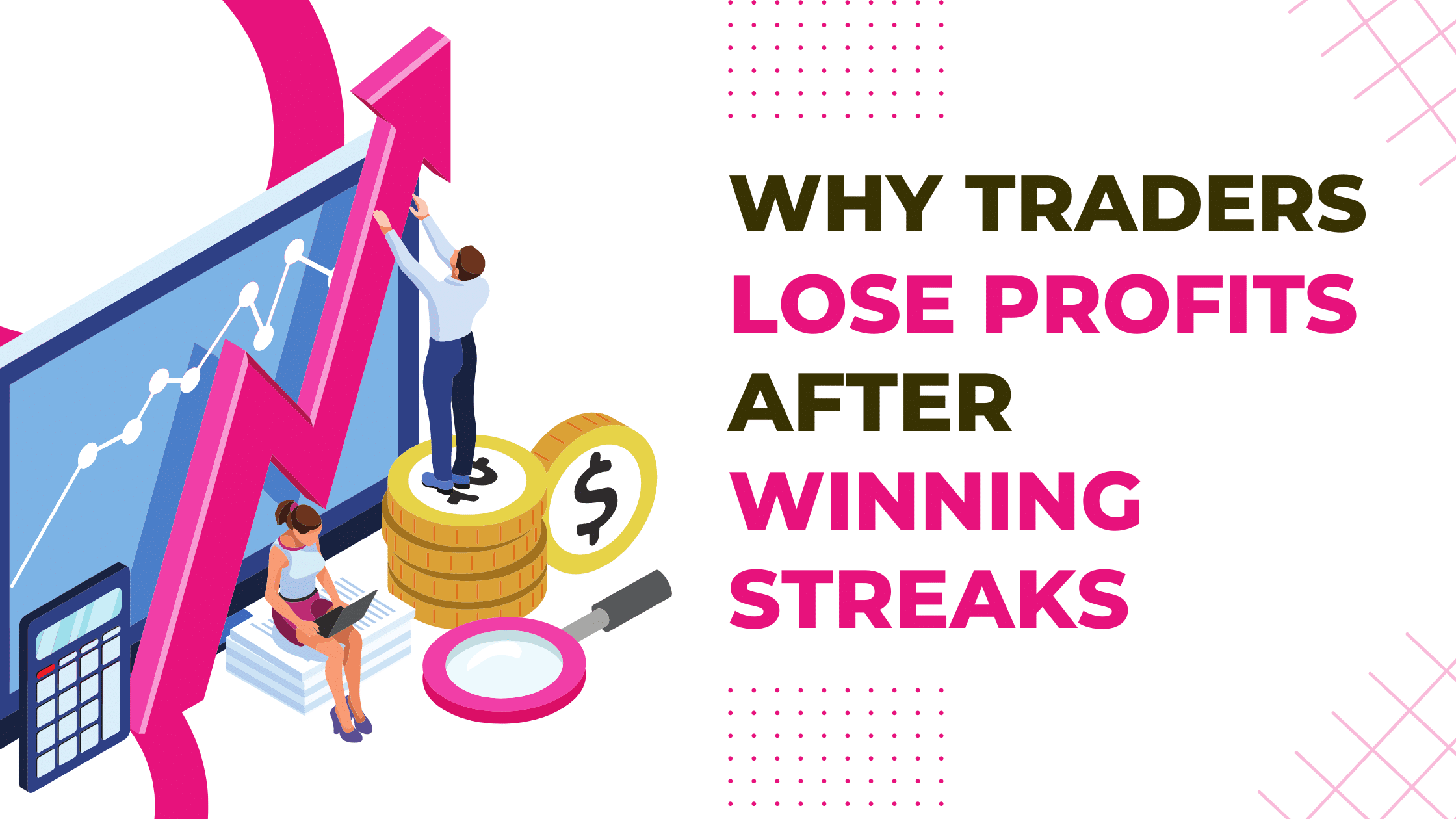 Have you ever experienced hitting a big winning trade or a series of successful trades, only to lose all your profits—and perhaps even more—shortly afterward? Continue reading to uncover why traders often give back their profits and learn how to stop this cycle for good.
Have you ever experienced hitting a big winning trade or a series of successful trades, only to lose all your profits—and perhaps even more—shortly afterward? Continue reading to uncover why traders often give back their profits and learn how to stop this cycle for good.
The Psychology Behind Giving Back Profits
While there are likely several reasons you keep losing your trading profits, they all share a common thread: The Recency Effect.
The Recency Effect is a psychological phenomenon where people are more inclined to remember and act based on recent events rather than those that occurred earlier. This is a natural human tendency, but as traders, we need to understand its profound implications.
When traders focus too heavily on their most recent trading results, they lose perspective. It’s incredibly easy in trading to become overly influenced by your latest trades, leading to poor decision-making.
The Recency Effect is the primary reason why traders repeatedly give back their profits. It creates a false sense of confidence in their trading abilities, ultimately leading to mistakes and losses.
False Confidence: An Enemy in Disguise
When we become overly influenced by our most recent trades (due to the Recency Effect), it often leads to a false sense of confidence.
For instance, a novice trader might get lucky and start with a string of three consecutive winning trades, which can happen even if they lack experience. Suppose these wins occurred under favorable market conditions—strongly trending, making it easy to profit quickly. If market conditions suddenly change, the trader might continue trading, buoyed by their recent ‘easy money.’ However, their lack of education, understanding, and trading skill, combined with this false confidence, leads them to continue trading, ultimately losing all the money they previously made.
This scenario is very common, and nearly every trader encounters it at some point. False confidence can make you feel smarter than you are, as if you possess a special trading ‘gift’ that others lack. In reality, such a gift is rare, and feeling like you have one is a warning sign that you’re about to lose money to the market.
To overcome the Recency Effect and false confidence, it’s crucial to remember that thinking in probabilities is key to lasting trading success. We trade based on probabilities, not certainties, and each trade is unique and independent of the previous one. Your last trade’s result has no bearing on your next trade. Adopting this mind-set is essential for developing the proper trading mentality. When you place too much importance on recent trades, you lose sight of your trading plan and long-term goals, leading to consistent losses.
Cold, Hard Cash
Nothing feels more real than cold, hard cash in your hands. The tactile sensation and distinctive smell create a sensory experience that leads to a strong emotional and psychological connection. This experience is vastly different from merely looking at numbers on a computer screen.
What’s My Point?
When we never physically handle our trading money, particularly the profits, it becomes intangible and thus less significant to us. In short, we care less about it.
It’s much easier to lose your trading profits if you don’t care about them. Imagine holding $500 in cash—if someone tried to take it from you, you’d likely fight to keep it. But when that same $500 exists only as numbers on a screen, and you can’t see who’s taking it, you might just shrug, feel a bit upset, and maybe deposit another $500 into your account.
See the problem here?
Here’s the solution: Each month, if you made money trading, even if it was just a $10 profit, withdraw some of it. Get that cash from an ATM or your bank and keep it where you can see and touch it. Place it on your trading desk or in a jar within reach. Handle it once a week, feel it, smell it—recognize that it’s real money and you don’t want to lose it. Then, trade with that feeling in mind. Trade defensively to preserve your trading capital, because that’s how you survive and eventually thrive in the world of trading.
Conclusion
Unnecessarily giving back trading profits is one of the most frustrating aspects of trading. If it spirals out of control, it can lead to a series of mistakes that might eventually wipe out your account.
By sharing these insights, I hope to help you avoid growing your trading account only to lose all your profits. Such events can severely damage a trader’s confidence, making it difficult to recover both mentally and financially. Therefore, it’s crucial for traders to be prepared.
I encourage traders to remain humble and treat each trade and each day with the same discipline as before. There is no room for egos in the market, nor for traders who act impulsively to prove the market wrong or to recover losses by holding onto losing positions stubbornly.

